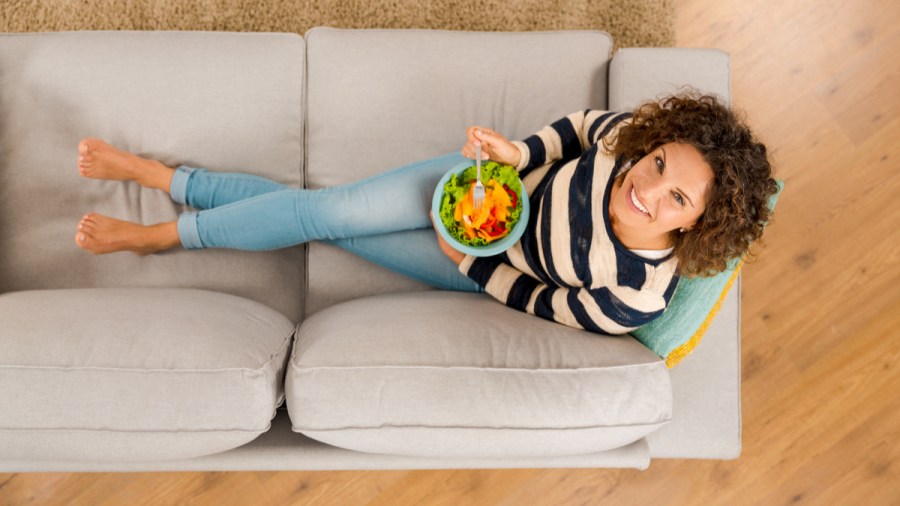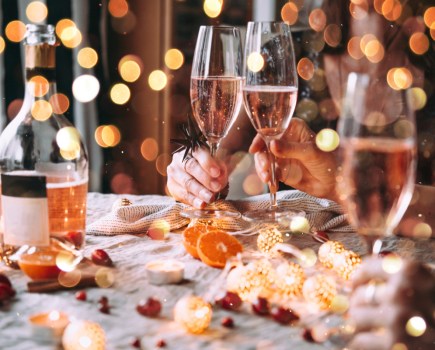When it comes to managing anxiety, nutrition can play an important role. Here, Lorraine Perretta, nutritional therapist for mental wellbeing at the Institute for Optimum Nutrition’s Brain Bio Clinic, reveals what to eat and what to avoid to help nip rising anxiety in the bud.
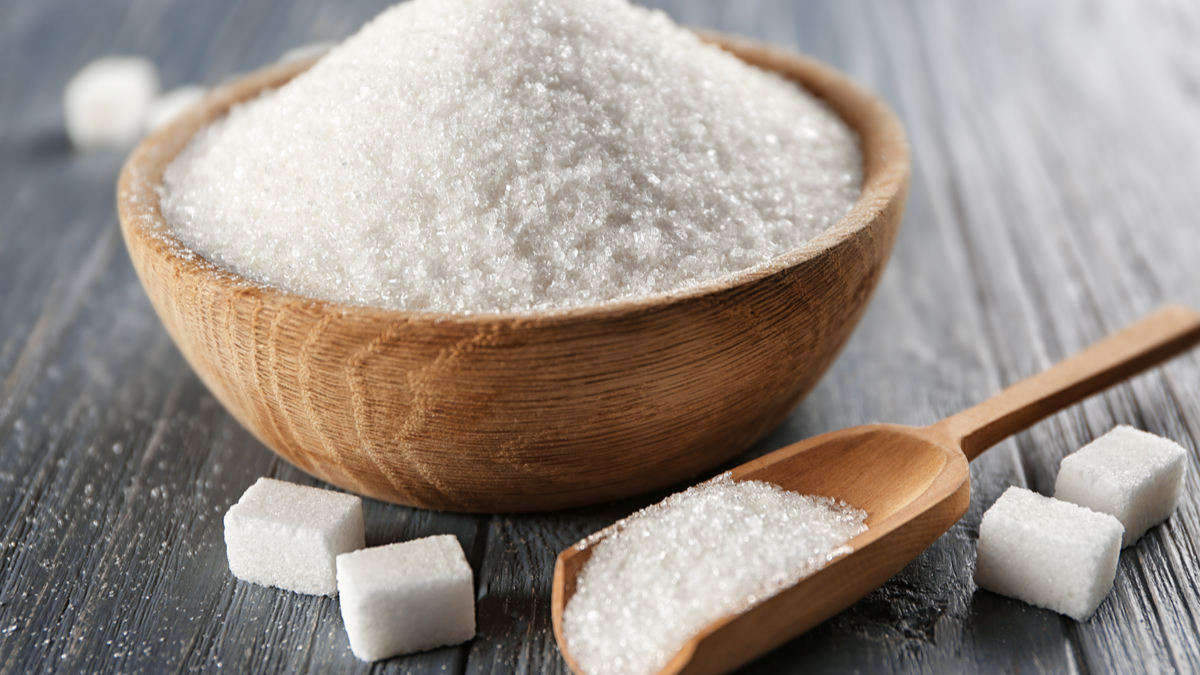 Say no to sugar
Say no to sugar
We all love a little something sweet in our lives, but sugar increases anxiety so it is best to stick to natural sugars from whole fruits. Whenever possible, choose berries – both fresh and frozen are fine – as these contain less sugar than some ofher fruits (such as pineapples and mangoes). Otherwise, opt for citrus fruits, such as oranges and satsumas, or apples and pears. Limit your consumption of bananas and dried fruit as these are all high in sugar and may increase anxiety.
Eating fruit with natural yoghurt or cottage cheese, or a handful of seeds, nuts or nut butter, can help limit the spike in blood sugar levels thanks to the fats and proteins they contain. The same applies if you’re using fruits and vegetables in your smoothies.
If you have a craving for mangoes or pineapple, use them in salads, alongside fish or chicken, to minimise their impact on blood sugar and, therefore, their impact on anxiety.
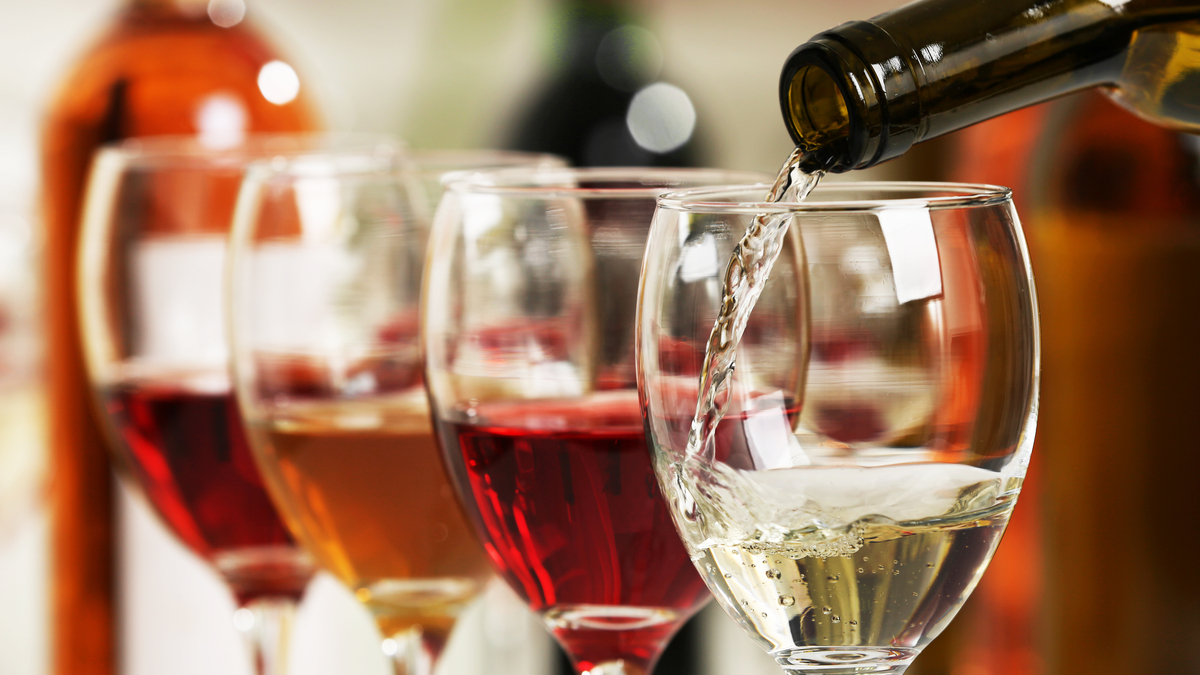
Alcohol isn’t the answer to anxiety (it makes it worse)
It’s tempting to reach for a glass of wine or a gin and tonic when you are worried about something, but this will have the opposite effect on your mood in the long term. If you want to have a drink, make sure you have it after food – and just have one drink, rather than the whole bottle! You can also choose sparkling water with lemon, berries or mint instead, and drink it in a wine glass.
We’ve got some non-alcoholic drink suggestions here.
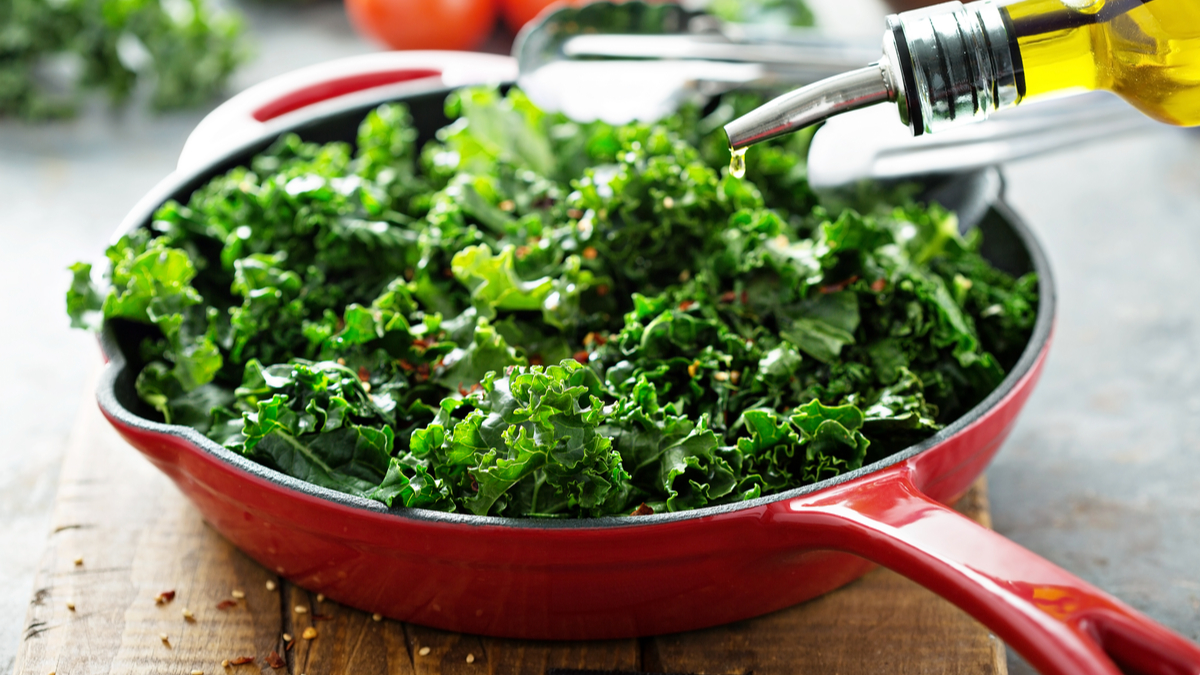
Make room for magnesium
Another important ‘feel good’ mineral is magnesium, which helps support a healthy sleep/wake cycle and regulate mood. Research has found that during periods of stress, magnesium stores can become depleted, so it’s important to make sure you’re getting enough. Dark green, leafy veg, beans and peas, seeds, nuts, chickpeas and wholegrains are all good dietary sources. However, magnesium is easily absorbed through the skin, so an effective way to top up your magnesium levels is by adding some Epsom salts to your bath.
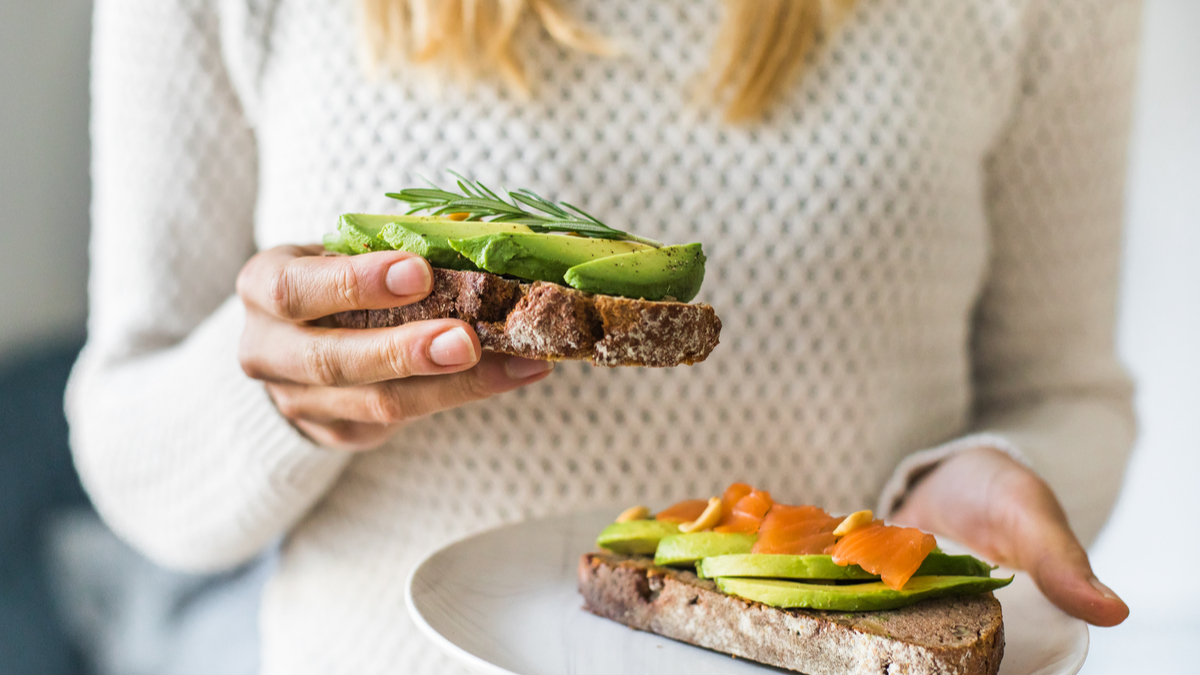
Have more omega-3 than omega-6
Studies have found that people with low levels of omega-3 fatty acids, found in oily fish, olive oil, and avocados, and high levels of omega-6 fatty acids, found in seed oils and many processed foods, often have poorer mental health. one of the best ways to increase dietary omega-3 is by eating oily fish. A good way to remember which ones these are is to use the acronym SMASH: salmon, mackerel, anchovies, sardines and herring.
Seaweed, spirulina, flax, chia and hemp seeds, as well as walnuts, avocados and olive oil, are good sources of omega-3 for non-meat eaters. However, these are sources of ALA omega-3. once consumed, ALA is converted to EPA, which is then converted to DHA.
Unfortunately, your body is unable to convert very much ALA to EPA and then DHA. So, in order to maximise this conversion, you need to include lots of sources of ALA in your diet each day. It’s the EPA but mostly DHA that are most beneficial for brain health. Therefore, vegetarians, vegans or anyone not eating two to three portions of oily fish per week may want to think about supplementing. A nutritional therapist will be able to give you personal advice on this.
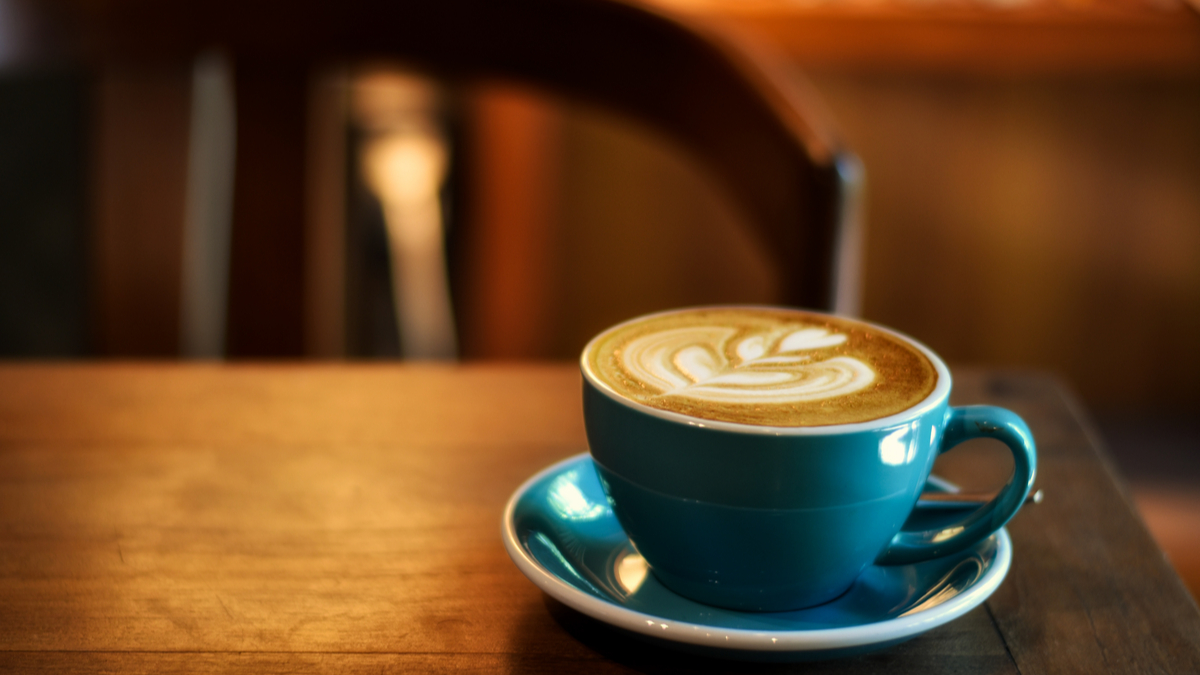
Cut out caffeine
When people feel anxious, they often think having a cup of tea will help soothe them. Caffeine in tea, coffee and even chocolate, if it’s very dark, triggers the fight or flight reaction in the body. This reaction moves the body to survival mode, which results in feelings of anxiety, fear and even rapid heartbeat. Just one cup of tea can result in feelings of increased anxiety in some people!
I had a client who gave up tea and immediately experienced a calmness she hadn’t felt for years. She told me that she has now given up what she refers to as “Anxie-Tea”! In my opinion, caffeine should be given up completely until anxiety is under control. Choose caffeine-free alternatives, such as fruit teas which are not really teas, but infusions.
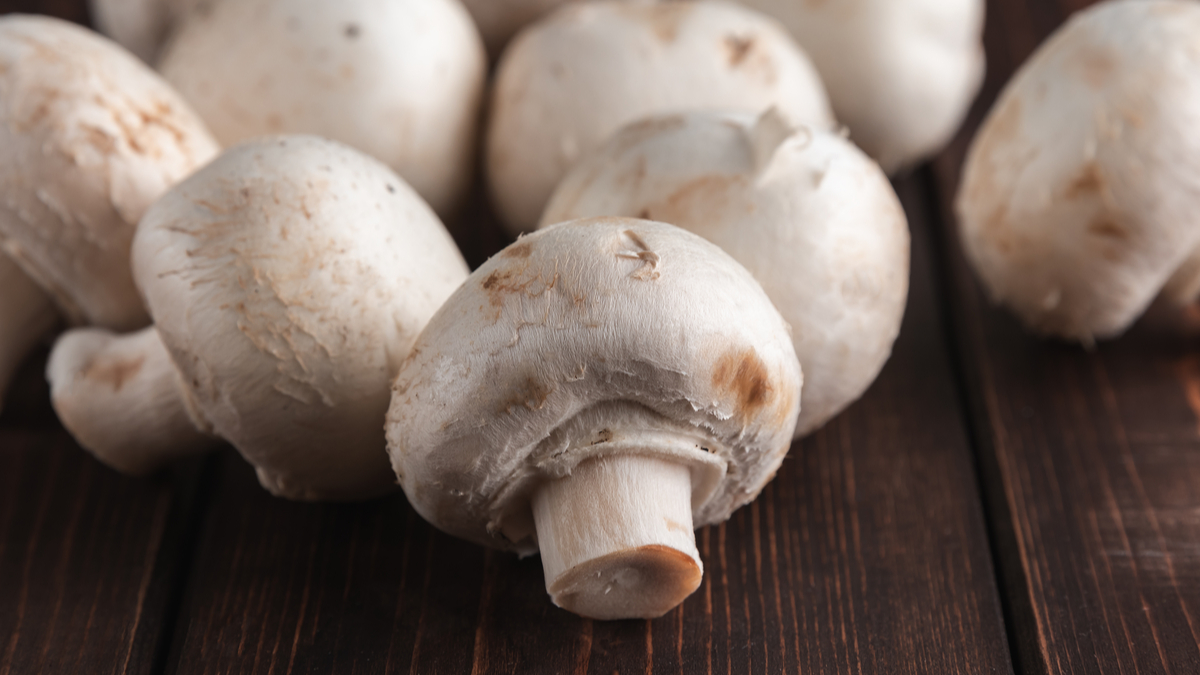
The sunshine supplement can help with anxiety
Vitamin D is important for healthy brain function. While sunlight is the best source, getting enough this way can be a challenge. Dietary sources include SMASH fish (see p49), some mushrooms (leave them in the sun as they create vitamin D!), egg yolks and some fortified foods.
Happy gut, happy mind
About 90 per cent of your happy hormone, serotonin, is produced in your gut and so a healthy digestive system is paramount to help ensure adequate levels.
Eating a coloured, varied diet that includes vegetables, fruit and wholegrains has links to good mental health. This is because it contains lots of fibre, which is essential for feeding your gut bacteria. You can include more vegetables in your diet by adding them to things such as curries and stews or just having a side of greens with each meal.
Probiotic foods, including fermented foods such as live yoghurt, kefir or sauerkraut, also provide beneficial bacteria that helps support digestive health. Some studies have also found probiotic supplements to be useful in tackling anxiety, although it is best to take these under supervision from a nutritional therapist.
Food sources of probiotics include live yoghurt, kefir, tempeh, natto and miso made from soya beans, sauerkraut and kimchi from cabbage, and kombucha from tea.
Eating food rich in tryptophan can also improve levels of serotonin. Tryptophan must come from the diet because the human body cannot produce it. Sources include turkey, chicken, salmon, eggs, spinach, nuts, seeds and tofu.
If clutter around your home causes your anxiety to rise, find out how to deal with it here.

